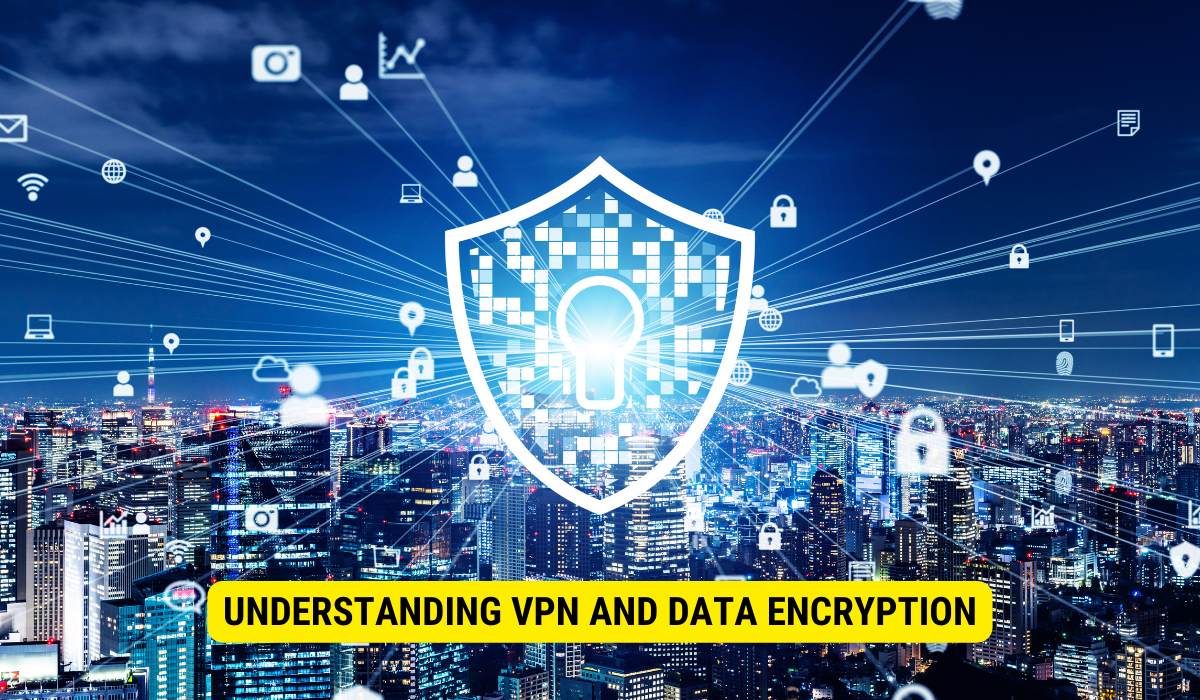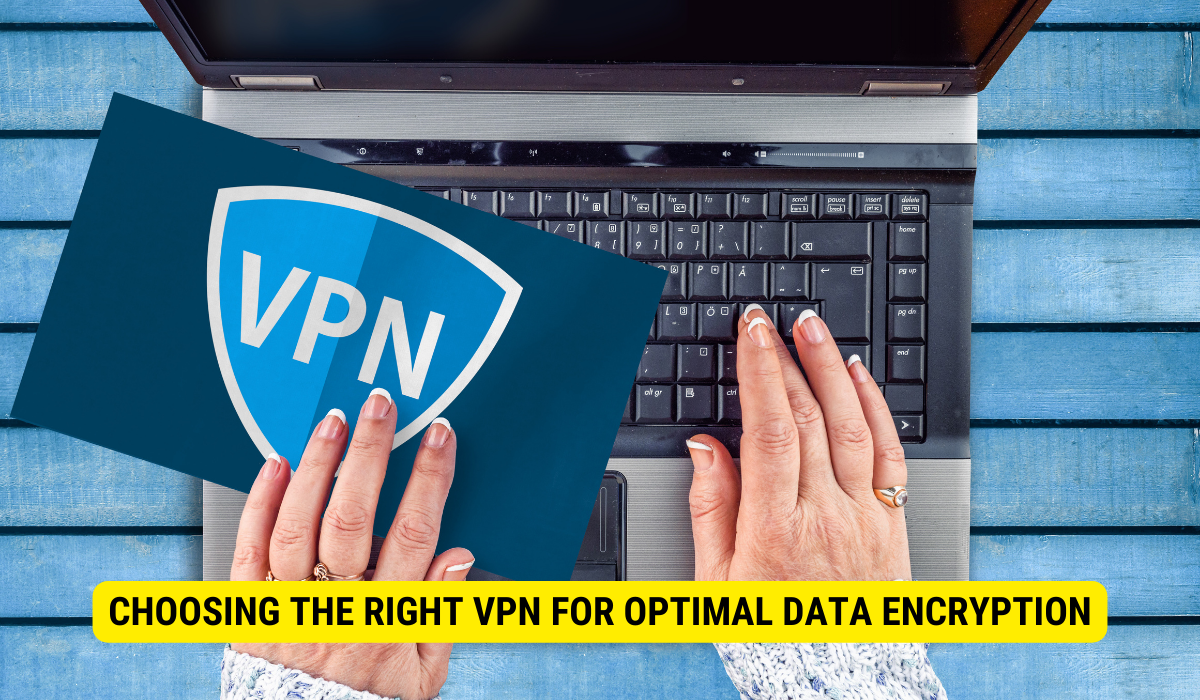A VPN encrypts your data, turning it into a secure, unreadable format to protect your online privacy and enhance security.
Privacy and security have become essential concerns for individuals and businesses in today’s digital age,. With the rise of cybercrime and government surveillance, protecting your data while browsing the internet has become crucial. One popular tool people use to safeguard online activities is a Virtual Private Network, commonly known as VPN. But what exactly is a VPN, and how does it encrypt your data? Together, we will explore the world of VPNs and delve into the intricacies of data encryption to answer the question, “Does a VPN encrypt my data?”
Understanding VPN and Data Encryption
What is a VPN?
A Virtual Private Network (VPN) establishes a secure and encrypted connection between your device and the internet. It creates an encrypted tunnel that your data passes through, making it nearly impossible for hackers, government agencies, or ISPs to intercept or access your online activities.
When you connect to a VPN, your device creates a safe link to a remote server operated by the VPN provider. This server acts as a middleman between your device and the internet. All your internet traffic is routed through this server, which encrypts your data before sending it to the internet. This encryption ensures that even if someone manages to intercept your data, they won’t be able to decipher it without the encryption key.
Moreover, a VPN also masks your IP address, swapping it with the IP address of the VPN server. VPN adds an added layer of security by hiding your true location and making it hard for webs or online services to track your online activities.
The Basics of Data Encryption
Data encryption converts plain text into ciphertext, rendering it unreadable to unauthorized users. This cryptographic technique uses algorithms and encryption keys to scramble the data. Only with the corresponding decryption key can decipher and access the original information. Encryption plays important role in ensuring the privacy and integrity of your online communications.
There are different types of encryption algorithms used in VPNs, such as AES (Advanced Encryption Standard) and RSA (Rivest-Shamir-Adleman). These algorithms use complex mathematical calculations to transform your data into an unreadable format. The encryption keys used in these algorithms are extremely long and random, making it computationally infeasible for anyone to break the encryption.
When you send data over the internet, it is divided into small packets. Each packet is encrypted individually and then sent to its destination. The packets are decrypted and reassembled at the receiving end to retrieve the original data. This process ensures that even if someone intercepts one of the packets, they won’t be able to make sense of it without the decryption key.
Encryption is used in VPNs and in various other applications like secure messaging apps, online banking, and e-commerce websites. It provides a safe way to transmit sensitive information over the internet, protecting it from unauthorized access and ensuring that your data remains confidential.
How VPNs Work to Protect Your Data
Virtual Private Networks (VPNs) have become essential for ensuring online privacy and security. In a world where cyber threats are continuously evolving, understanding how VPNs work to protect your data is crucial.
The Role of VPN in Internet Security
When you use a VPN, your internet traffic passes through an encoded tunnel to a VPN server located in a remote location. This process adds a layer of security, making it difficult for hackers, government agencies, or even your Internet Service Provider to monitor or intercept your online activities.
Imagine sitting in a coffee shop connected to the public Wi-Fi network. Without a VPN, your data is vulnerable to eavesdropping. Hackers can intercept your sensitive data, such as passwords, credit card details, or personal messages. However, using a VPN, your data is encrypted before it leaves your device, ensuring that even if intercepted, it remains unreadable and useless to anyone without the decryption key.
Furthermore, the VPN server is an intermediary between your device and the webs or services you access. This process masks your IP address, making it appear as if you are browsing from the location of the VPN server. This enhances your privacy and allows you to bypass geo-restrictions and entree content that may be blocked in your region.
VPN Encryption Techniques
VPN providers use various encryption techniques to secure your data. These techniques include symmetric encryption, asymmetric encryption, and hashing algorithms.
Symmetric encryption utilizes a single encryption key to encrypt and decrypt data. This key is known only to you and the VPN server. When you send data through the VPN tunnel, it is encrypted using this key. The encrypted data is decrypted using the similar key upon reaching the VPN server. This method ensures that only authorized parties can access and understand the data.
On the other hand, asymmetric encoding employs two distinct keys: A public key for encoding and a private key for decryption. The public key is available to everyone, while the private key is kept top-secret. When you connect with a VPN server, your device and the server exchange public keys. This allows your device to encrypt the data using the VPN server’s public key, ensuring that only the VPN server, with its corresponding private key, can decrypt and access the data.
In addition to encryption, VPNs also utilize hashing algorithms to ensure data integrity. Hashing algorithms generate fixed-length strings, known as hashes, from your data. These hashes are unique to the input data, meaning that even a small change in the original data will result in a completely different hash. By assessing the received hash with the calculated hash, VPNs can detect tampering or alterations that may have occurred during transit.
VPNs provide a robust and secure environment for transmitting your data over the internet by combining these encryption techniques and hashing algorithms. They offer peace of mind, knowing your online activities are protected from prying eyes and potential threats.
Types of VPN Encryption Protocols
OpenVPN Encryption
OpenVPN is one of the most widely used VPN encryption protocols. It utilizes OpenSSL libraries and supports various encryption algorithms, for instance AES (Advanced Encryption Standard) and Blowfish. OpenVPN is highly secure and provides excellent protection against eavesdropping and data tampering.
IPsec Encryption
IPsec, short for Internet Protocol Security, is another commonly used VPN encryption protocol. This operates at the network layer of the OSI model and also ensures data confidentiality, integrity, and authentication. IPsec uses encryption algorithms, such as AES, to secure your data.
The Limitations of VPN Encryption
Potential VPN Security Risks
While VPNs provide robust encryption and enhance online security, they have limitations. One potential risk is the reliance on the VPN provider itself. Choosing a reputable VPN provider that respects your privacy and has a strict no-logs policy is crucial. Additionally, vulnerabilities in VPN software or protocols could compromise the encryption and expose your data.
Misconceptions About VPN Encryption
There are some misconceptions about VPN encryption that need clarification. While VPNs encrypt the data passing through their servers, they do not encrypt data on the websites or services you access. Encryption only protects your data between your device and the VPN server during transit. Furthermore, using a VPN does not guarantee complete anonymity. Though your IP address is hidden, your online doings may still be traceable through other means.
Choosing the Right VPN for Optimal Data Encryption
Factors to Consider When Selecting a VPN
When choosing a VPN, there are several factors you should consider to ensure optimal data encryption. Look for a VPN provider with strong encryption protocols, such as OpenVPN or IPsec. It is also important to check if the VPN has undergone third-party security audits to ensure the effectiveness of its encryption. Additionally, consider the server locations and the VPN provider’s privacy policy to ensure your data remains secure.
Importance of Regularly Updating Your VPN
Regularly updating your VPN software is crucial to maintain the integrity of the encryption. VPN providers often release updates to address vulnerabilities or improve security features. By keeping your VPN up to date, you ensure that you benefit from the latest encryption advancements and protect your data effectively.
Key Takeaways
- A VPN encrypts your data by creating an encrypted tunnel between your device and the internet, making it difficult for anyone to intercept your online activities.
- Data encryption converts your plain text into ciphertext, making it unreadable without the corresponding decoding key.
- VPNs employ encryption techniques such as symmetric encryption, asymmetric encryption, and hashing algorithms to secure your data.
- Popular VPN encryption protocols include OpenVPN and IPsec, which provide strong encryption and enhance your online security.
- While VPNs offer robust encryption, choosing a reputable VPN provider and staying updated with the latest software releases is important to maximize security.
FAQs
Q1: Can a VPN be hacked?
A: While VPNs use robust encryption to protect your data, they are not entirely immune to hacking attempts. It is essential to choose a reputable Virtual Private Network (VPN) provider and follow the best security practices to minimize the risk of hacking.
Q2: Is VPN encryption legal?
A: Yes, VPN encryption is legal and widely used to protect privacy and enhance security. However, the legality of VPNs may vary in different countries, so it is essential to be aware of the regulations governing VPN usage in your jurisdiction.
Q3: Does a VPN encrypt all my internet traffic?
A: Yes, a VPN encrypts all the internet traffic originating from your device as long as you are connected to the VPN server. This ensures that all your data remains secure and private.
Q4: Can VPN encryption affect my internet speed?
A: Encrypting and decrypting data requires computational resources, potentially impacting your internet speed when using a VPN. However, with modern encryption algorithms and powerful hardware, the impact on speed is typically minimal.
Q5: Can I use a VPN on all my devices?
A: Yes, VPNs are available for various devices and platforms, including Windows, macOS, iOS, Android, and even routers. Most VPN providers offer dedicated apps or setup guides to facilitate seamless integration with different devices.
Conclusion
With the increasing importance of online security, it is crucial to understand how a VPN encrypts your data and its limitations. By selecting a reliable VPN and following best security practices, you can enjoy enhanced privacy and safeguard your sensitive information from prying eyes.


